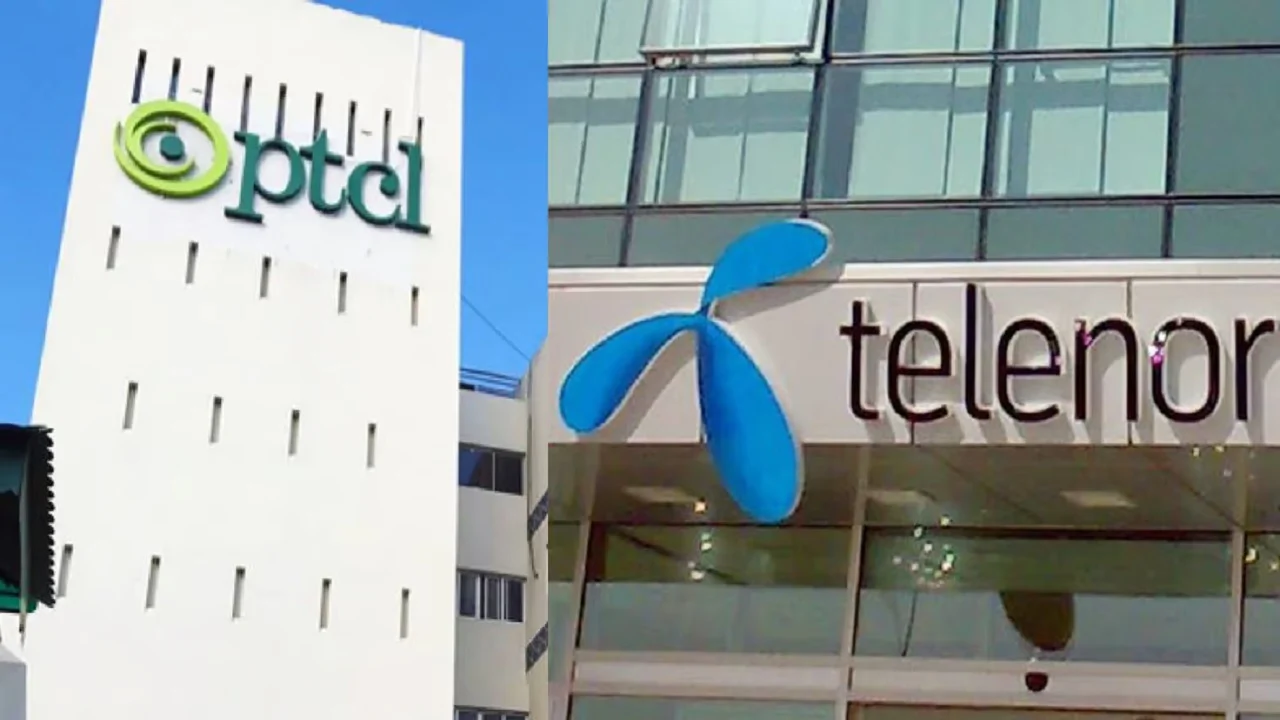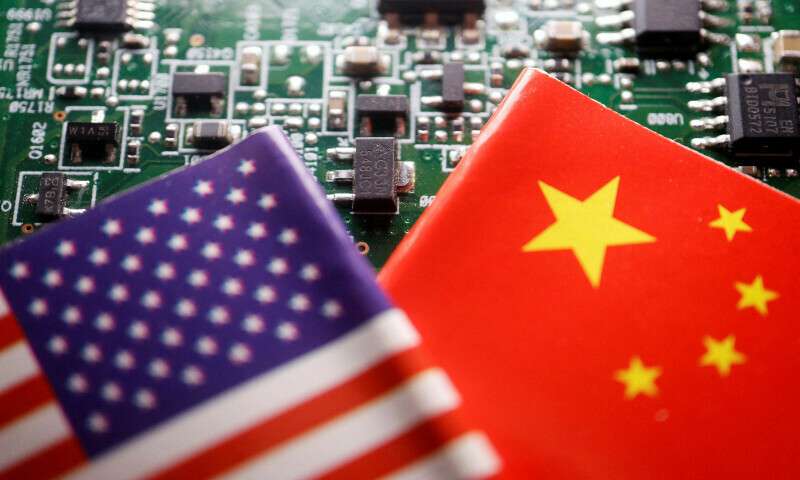The Competition Commission of Pakistan (CCP) has officially completed the Phase-II review of Pakistan Telecommunication Company Limited (PTCL)‘s acquisition of Telenor Pakistan Pvt Ltd and Orion Towers Pvt Ltd in a deal valued at $400 million. This acquisition marks a pivotal moment in the telecom sector of Pakistan, as it is poised to drive substantial vertical and horizontal market expansion. The merger, which combines mobile services and telecom infrastructure, is expected to bring about significant changes in market dynamics, benefiting some while raising concerns among others.
Overview of PTCL’s Acquisition of Telenor Pakistan
In this transaction, PTCL is set to acquire Telenor Pakistan’s mobile and broadband services along with Orion Towers’ telecom infrastructure assets. The deal will create one of the largest telecom entities in the country, consolidating resources and expanding PTCL’s influence across multiple facets of the telecom industry. This merger has caught the attention of the entire telecom industry in Pakistan, as it holds the potential to reshape competition, efficiency, and overall market performance.
Key Elements of the Acquisition
The deal encompasses the following critical assets:
- Mobile and broadband services from Telenor Pakistan.
- Telecom infrastructure including towers and network assets from Orion Towers.
Both Telenor and Orion Towers are influential players in Pakistan’s telecom market, with Telenor Pakistan serving a significant portion of the mobile and broadband users, while Orion Towers owns valuable infrastructure that PTCL will leverage post-acquisition.
CCP’s Phase-II Review Process
The acquisition was subject to a rigorous review process by the CCP, which assesses mergers and acquisitions to prevent anti-competitive practices. The Phase-II review focuses on the detailed examination of potential market impacts, ensuring that the transaction does not harm consumer welfare or reduce competition. The CCP’s investigation has included:
- Extensive hearings held during September and October 2024.
- Engagement with various stakeholders, including competitors and industry experts, to understand the possible effects of the merger.
- A focus on how the deal might affect key submarkets in the telecom industry, such as Long Distance and International (LDI) services, Local Loop Operators (LLO), telecom infrastructure, and the mobile network market.
The review has been led by CCP Chairman Dr. Kabir Ahmed Sidhu, who emphasized the importance of maintaining market fairness. The final decision, expected soon, will determine whether the deal can proceed as planned or if regulatory safeguards are necessary to ensure fair competition.
Impact on Market Dynamics
One of the most significant effects of this acquisition is the substantial changes it will bring to market shares across different segments. The CCP focused on the following key areas to evaluate the acquisition’s effects on competition:
Mobile Telecommunications
The merger of PTCL’s Ufone (currently holding a 12.4% market share) with Telenor’s 24% market share will create a combined entity with a 37% market share. This substantial increase will give the merged company more leverage in the mobile telecom market and could potentially change the competitive landscape.
Long Distance and International Services (LDI)
PTCL is already a dominant player in the LDI market, controlling 50.5% of the retail sector. Post-merger, PTCL’s share is expected to rise to 61%, potentially allowing it to influence prices and service offerings more heavily. This could raise concerns among competitors who may find it harder to compete in the LDI segment.
Telecom Infrastructure
The acquisition of Orion Towers’ telecom infrastructure will significantly enhance PTCL’s control over key telecom assets, giving it 68% of the wholesale IP bandwidth market and 42.7% of the domestic leased lines market. This expanded infrastructure base strengthens PTCL’s position as a market leader and could limit the ability of other operators to compete on infrastructure-based services.
Domestic Leased Lines and IP Bandwidth
PTCL’s expanded share in these markets could result in more favorable terms for itself but could also restrict competitors’ access to essential services, potentially stifling innovation and increasing service costs for smaller operators.
Stakeholder Concerns and Industry Reactions
While the CCP has expressed optimism about the potential benefits of the merger, several industry players have raised concerns regarding its anti-competitive implications.
Wateen Telecom’s Concerns
Wateen Telecom has voiced concerns about the impact of the merger on infrastructure markets, specifically the Long Haul IRU Services and Co-location Services. The company warned that the merger could result in customer foreclosure, making it difficult for competitors to access critical infrastructure. This could create an unfair advantage for PTCL and hinder competition, particularly in rural or underserved areas.
Jazz’s Conditional Support
Jazz (PMCL), one of the largest telecom operators in Pakistan, has expressed conditional support for the merger. While Jazz recognizes that the acquisition could drive improvements in infrastructure and services, it has called for regulatory measures to ensure that PTCL does not exploit its expanded market share in ways that harm consumers. Jazz specifically raised concerns about the potential dominance of PTCL in certain regions, such as Azad Jammu and Kashmir and Gilgit-Baltistan, where market options are already limited.
Zong’s Concerns About Spectrum Control
CM Pak (Zong) has raised alarms about the potential spectrum concentration resulting from the merger. The combined entity could control up to 34.4% of the total spectrum in the retail mobile market, potentially giving PTCL an unfair advantage in coverage and service quality. This concentration of spectrum could particularly affect underserved regions, where PTCL would have an overwhelming presence.
CCP’s Commitment to Fair Competition
The CCP has emphasized that its primary objective is to maintain market fairness and prevent any actions that could undermine competition in Pakistan’s telecom sector. Chairman Dr. Sidhu stated that the Commission will ensure that the merger complies with legal and economic standards, safeguarding the interests of consumers and ensuring that the telecom market remains competitive.
Potential Benefits of the Merger
Despite concerns raised by competitors, the merger holds several potential benefits:
- Investment in digital infrastructure: The combined entity is expected to invest in expanding network coverage, which could improve service quality across Pakistan.
- Increased competition in certain areas: By expanding its market share, PTCL could offer better services, lower prices, and improved customer experiences in regions where it previously had less influence.
- Expanded telecom offerings: The acquisition of Orion Towers adds valuable infrastructure, enabling PTCL to enhance its service offerings across both mobile and broadband markets.
Challenges to Address
However, challenges also exist, particularly in areas such as spectrum control, market dominance, and access to infrastructure. The CCP must weigh these concerns against the broader economic benefits of the merger and ensure that appropriate regulatory safeguards are in place.
The Way Forward: What’s Next for Pakistan’s Telecom Industry?
As the CCP prepares to finalize its decision on the merger, the future of Pakistan’s telecom industry hinges on balancing the potential market consolidation with the need to maintain healthy competition. If the merger is approved, PTCL could emerge as a dominant player, reshaping the telecom landscape in Pakistan. However, if strict regulatory measures are imposed, the company might have to adjust its plans to ensure compliance with competition laws.
Conclusion
The acquisition of Telenor Pakistan and Orion Towers by PTCL represents a transformative moment for Pakistan’s telecom industry. The CCP’s review process will ensure that any market changes are beneficial to consumers while fostering a competitive environment. As Pakistan continues to navigate the merger, the country’s telecom landscape could be set for exciting developments, with better services, infrastructure, and potentially lower prices for consumers.
FAQs
1. What is the significance of PTCL’s acquisition of Telenor Pakistan?
This acquisition significantly enhances PTCL’s market share in mobile telecommunications and telecom infrastructure, allowing the company to offer more competitive services and improve network coverage.
2. What is the role of the Competition Commission of Pakistan in this merger?
The CCP reviews mergers to ensure they do not result in anti-competitive practices, aiming to preserve fair market competition and protect consumers.
3. How will the merger impact market competition?
The merger will consolidate PTCL’s market share, making it a dominant player in various telecom markets. However, it raises concerns about reduced competition in areas like spectrum control and infrastructure access.
4. What are the main concerns raised by competitors?
Wateen Telecom and Jazz have raised concerns about the potential for PTCL to dominate key markets, leading to possible customer foreclosure and limited competition, especially in infrastructure and mobile spectrum markets.
5. How will the merger affect consumers?
If approved with regulatory safeguards, the merger could lead to improved services, better infrastructure, and competitive pricing, though concerns about market concentration must be addressed.
MUST READ:



